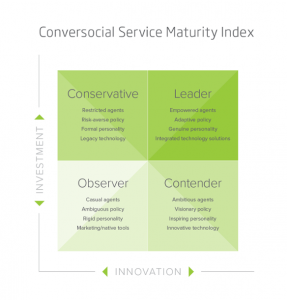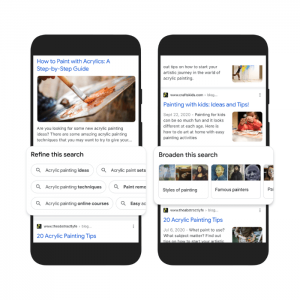— August 7, 2017

congerdesign / Pixabay
Whether you work for a massive firm or a one-person practice, your revenue potential is limited only by the new business you can bring in or your bandwidth to handle the work. For those looking to thrive and grow, the key is to continually drive new business your way. Put these seven tips from the experts into practice and that will soon be the case.
1. Nurture Client Relationships
According to best-selling author Ramon Ray, one of the biggest mistakes accounting firms make is failing to wow the client once the initial engagement is complete. According to Ramon, “Firms should not ignore clients that return year after year. Those clients are not locked in because it’s quite easy to switch accounting firms. Rather than get lackadaisical, it’s critical that business development professionals commit to staying top of mind with clients.”
Simply put, to encourage return business and loyalty, business development professionals must continue nurturing those client relationships. Ramon suggests something as simple as sending a box of chocolates on April 1 with a reminder that tax time is right around the corner.
2. Know Your Clients and Their Preferences
Use the rich data you have in your firm to learn about clients and discover where there may be opportunities to cross-sell. For instance, are there tax customers who work for organizations that may also benefit from your accounting and auditing services? Charlie Burns, a CPA and partner at Reid, Hanna, Johnson, grew her firm’s revenue 33% in 18 months. Half of that growth is attributed to existing clients. They achieved this by creating client profiles and making them accessible to the entire firm. This means anyone could easily serve any client, not only the CPA assigned to their account.
“Everyone has their client base where they do the same thing over and over,” explained Charlie in an Accounting Today webinar. “However, each client is growing and changing every day. We try to look at existing clients, not just run them through the mill, and have conversations about what they are doing and the services we provide them. We couldn’t have done that without a deep understanding of the information we hold about our clients.”
3. Specialize to Differentiate
Lauren Clemmer, executive director of the Association for Accounting Marketing, cuts to the point when she says the entire profession needs to embrace change. “Accounting firms must expand beyond compliance and traditional services to survive.” Part of that is embracing a willingness to adopt a laser-like focus with regard to the services and industries they serve.
For example, a firm might find greater success specializing in international tax or by exclusively serving a specific industry. “The more focused a firm, the better it can grow its business. In fact, a small firm can compete quite effectively against larger firms by specializing,” says Lauren.
The first step is for firms to gain a deeper understanding of their own business. “Smart firms dig into their data and analyze the source of their business. By understanding what their most profitable and loyal clients value, they can strategically focus to develop new product lines and new business based on their strengths.”
4. Consider the Full Client Experience
For more than 15 years, Mitch Reno has been leading business development for Rehmann, one of the nation’s largest CPA and consulting firms. Today, as principal and Director of Client Experience, he is instrumental in driving client retention, loyalty and satisfaction while working closely with firm leadership on strategy and growth initiatives.
According to Mitch, the key to Rehmann’s success is making each client feel like they’re the center of attention. As he explains, in this industry and others, more organizations are recognizing the need to consider the entire experience a client has with the organization, from start to conclusion of the relationship. “Every touch and interaction with a client has either an additive or negative impact on overall relationship satisfaction, loyalty and retention. As a result, organizations must determine what they can offer beyond providing a particular compliance deliverable for maximum interaction impact.”
5. Communicate Thoughtfully
“Statistics show that accountants are viewed as the most trusted advisor, even above law firms,” explains Angie Grissom, President of The Rainmaker Companies. But while accountants may be viewed as trustworthy, accounting firms must actively seek to build the kind of relationships that will ensure they will always outpace the competition.
“Don’t be blind to how you’re perceived, because we’re in a trust business,” advises Angie. “To be known as someone who can be trusted, you must understand how you communicate and how others prefer to communicate.” She explains that while most accountants tend to be conscientious, task-oriented and introverted, client CEOs are often direct, fast-paced and decisive. So it can be easy for them to perceive accountants as passive, and therefore, not fully trust them. “It comes down to you being aware of how you’re perceived and matching more closely the preferred communication style of the client you’re working with,” she says.
6. Keep Up with the Latest Technologies
Gene Marks, CPA, and columnist for publications such as Forbes and The Washington Post, says,
“Every partner and owner of a professional services firm is investing in technology – mobile apps, cloud apps, automation, workflows – to make themselves and their people more productive and their firms more profitable,” he explains. “Today’s technologies save time, improve data accuracy and elevate client service. Not keeping up on technology and making the wrong (or no) investment is a recipe for early demise.”
“A CRM system makes sure nothing falls through the cracks and no one in your firm looks like a dope when the client calls in,” he points out. “…You know what people are doing with your clients and you ensure that your clients are being touched by your firm with good information… all of this strengthens relationships.”
7. Get the Most from CRM
According to Ray Beste, a partner at Sikich, “In professional services firms (such as accounting firms), where relationships drive success, having the proper technology to capture and report on those relationships is key to stability and growth,” he points out. “Today’s technology allows for the ease of capture of those interactions so that users spend more time using the information rather than collecting the information.”
“The key feature that any accounting practice needs in order to get the most out of a CRM package is ease of use — if it’s not simple, it doesn’t get used. If each user can access the CRM natively while living and working in Microsoft Outlook, Word and Excel, overall adoption of the product will naturally increase.”
That said, “Whether you’re a professional services, accounting or engineering firm, it’s a fallacy to think a technology tool is going to make users magically enter data and be accurate, and that’s just going to happen automatically because you have new software.”
Ray exhorts companies to understand and define their processes, convince their employees to follow them, and then model those processes within the CRM. The key, he is says, is to automate these processes as much as possible so business development professionals don’t devolve into data entry clerks.
What are your best marketing and biz dev ideas for accounting firms?
Business & Finance Articles on Business 2 Community
(95)
Report Post






